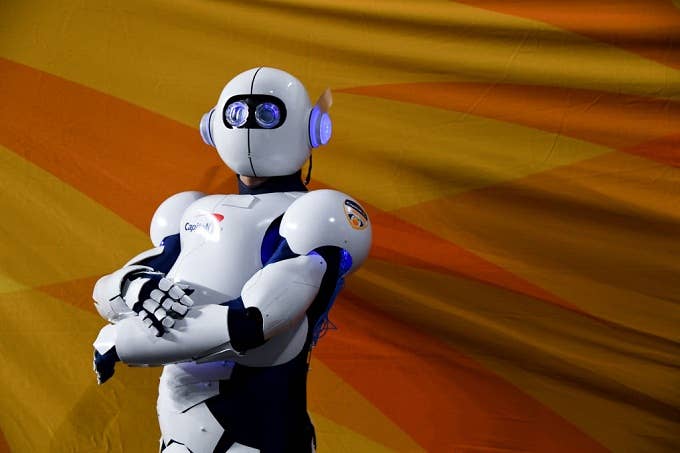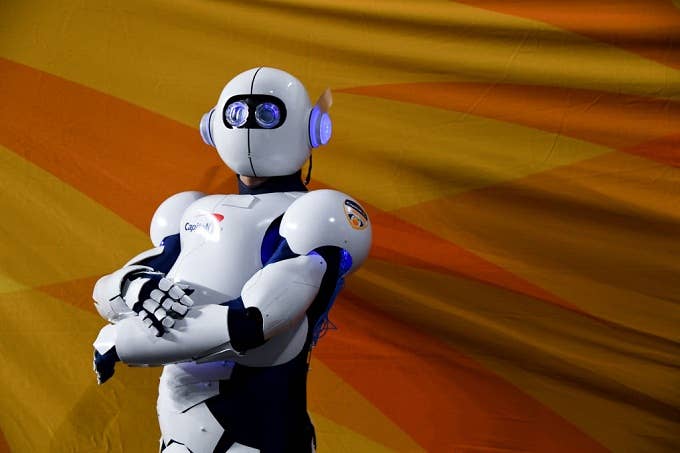
If there's ever a robot uprising, be very afraid. The next generation of potential-human-destroyers could have muscles with "the adaptability of an octopus arm, the speed of a hummingbird, and the strength of an elephant." At least that's what Christoph Keplinger, the senior author of two new papers in Science and Science Robotics, is claiming.
Keplinger and his team have been pouring vegetable oil in elastic bags and sticking in some electrodes, Newsweek reports. When electricity hits them, the oil pulls on the electrodes, forcing the whole thing to contract and release in milliseconds—faster than any human muscle.
Armed with this superpower, androids could move more like people, gliding through their surroundings and picking up small, fragile objects instead of clunking around like the awkward metal creatures we usually picture when we think of robots. But their ability to lift heavy things is just as impressive. On top of that, the muscles' liquid insulation layer lets them self-heal in the case of electrical damage. The main kink the scientists still need to work out is providing enough electricity, but they're already creating devices that can run on less voltage.
So, it seems like robots are winning the whole human-robot arms race as of now. But the researchers say their technology could also be used to make artificial limbs. So, there may be hope for humanity after all.

